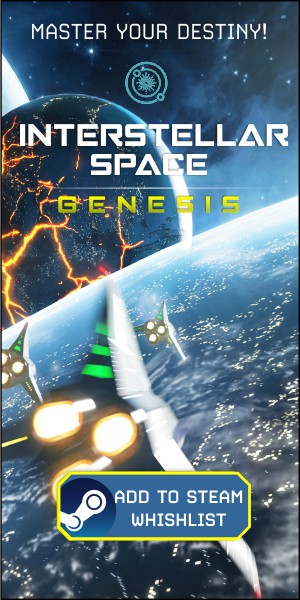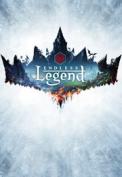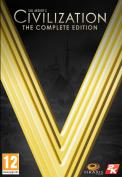I want to take the time to talk about challenge in games. I’d like to begin by saying that challenge is very subjective and what one gamer finds fun and challenging isn’t the same for the other. However, I believe I can talk about some general points that can hit a whole range of topics. Also, compared to other articles, this particular one will have a bit heavier focus on non-4X games.
Challenge
One reason why challenge is important in games is because can give meaning to the game. I like to think of it as the brother to the entertainment value of games. While a game may be entertaining, it can also be challenging and appeal to our Human Nature to adapt and overcome situations. In other words, it is part of the “substance” that makes the game (or parts of it) worth doing. “Man, that was a tough fight.” or “It took me 6 times before I made it over that lava pit!”. Without these challenges and moments, what is there to remember? Much less.
As such, challenge can be used, just like progression can be: giving an emotional reason for a player to play the game. In fact, I’d say they go hand in hand. With a good progression system, the challenge for the player would be present at every step (forward) of the way. This keeps the player involved because there is “conflict” and their reason for playing is strongly present. The challenge is a mechanism to create this conflict.
I remember as a kid playing Super Mario on the NES. At the end, I battled Bowser many times and perished. But I kept at it and when I finally defeated him, I felt satisfied and very proud of my achievements (hey, Bowser is a tough baddie when you’re 9!). In fact, this moment was so memorable, 20 years later, I can describe to you the everything about the room I was in: what was in it, the wall colors, where I was sitting and more. That was how much of a meaningful challenge this was to me.
I have noticed over my gaming career that removing challenge from certain types of games, makes it become completely meaningless. If you haven’t already, try this experiment: Find a FPS game with a poor story line. Play it for awhile on the hardest mode without cheating. Notice how you feel. Now, turn on god mode (immunity to all damage). Notice how you feel in the next 10 minutes. Probably pretty good? What about 60 minutes from now? Pretty meaningless, maybe? By removing the challenge, a part of the game vanishes. The conflict is gone and without a compelling reason (such as a story line) in the game, how long will the fun last? Not long.
Before I go on, I want to make it absolutely clear that too much challenge can be a complete turn off. My main guidance here for developers is to think about the design and then try it yourself. See how you feel. Remember, as the developer, you know a lot of how the game and underlying systems work so it will most likely seem easy. After any tweaks, ensure that some sort of Quality Assurance is done – mostly through play tests so that it is possible to gauge how the testers are enjoying themselves.
Types of Challenge
I like to classify challenge into the following categories: Time, Mind/Puzzle Twitch, Statistical/Numerical, and “The Moment”. Each type has different characteristics and qualities.
Time
An element of time is factored into the game (or part of it) to create a conflict. This can either be in the form of time limits to accomplish a task or it can be using time to prolong a task or attaining some goal.
Using time can be one of the easiest ways in introducing challenge. The reason why usage of Time is challenging is because the reward does not immediately come and some investment must be made. For example, EverQuest 1 and 2 had Epic Weapons. These generally took a lot of time to acquire. The quests themselves weren’t very challenging; but some effort and time had to be put forth.
Giving the player a duration to complete a task can certainly develop a sense of challenge. The key is to balance it correctly and to ensure that it does in fact still remain fun.
Prolonging a task is also known as a Time Sink. While Time Sinks can be effective tools to make content last longer (which is especially used in MMORPGs, since players can consume content faster than developers can create it), it must be carefully used because the players will not look upon unnecessary time sinks fondly. This really is a balancing act.
Some easy ways to use time consists of progression/leveling curves for character levels or skills, researching technologies, constructing buildings/ships, etc. It is best to ensure that the progression is natural and logical. It doesn’t make much sense for a level 1 laser beam to take 5 turns to research but the level 3 laser beam take 50 turns. But it does make sense for “The Death Ray of Dooming Doom” to take 50 (or more!) turns. If a player can rationalize why something takes as long (or short) that it does, they will accept it and attain more pleasure from the action. Their focus stays IN the game and immersion is not broken. It makes sense for a Death Ray to take much longer than a laser beam.
Mind/Puzzle
Mind Challenges mostly involve solving some sort of puzzle or constructing a solution out of a series of in-game pieces of information. For example, using a series of levers to open several doors in the correct order such that the path forward is cleared. Or answering some questions that which the answers were previously provided in a dialog.
Mini-games can also be used and can (depends on the game and player) be a good way to introduce challenge.
Also, this can be a strategical challenge. The choices the player makes through unit construction, deployment, and attacks can play a huge factor in how challenging the game is. The turn based strategical games such as The Operational Art of War definitely use this type of challenge.
Twitch
Twitch or reflexes can also be another way to introduce challenge. This type of challenge is mostly in certain genres such as FPSs, RTSs, MMORPGs, etc. This is a unique type of challenge and is not suited to all gamers. Some like to think and slowly plan their moves and they’d be more apt for strategy games. While others enjoy the fast pace action and satisfaction of the skill and finesse it takes to perform in these games.
By relying on the user’s natural ability to perform some action on the screen, it creates an entirely new type of challenge. By pressing the right buttons or moving the mouse to the right spot at the right time, it can be difficult and satisfying. It is difficult because one player’s natural skill is pitted against someone else. The conflict doesn’t come down to who has the “biggest attribute” or the “best gear”, but to who was faster and was able to have better reflexes.
Statistical/Numerical
Not all games totally rely on the player’s reflexes or strategical thinking. Some games can focus purely on numbers. We all know that numbers dominate the inner workings of games and are a key way to ensure balance. However, the role of numbers for the challenge can vary from game to game.
As such, they can be made to ensure the game is challenging. A common example of this is in MMORPGs with gear and skills. They are heavily based on numbers to ensure balance and good challenge. Another example would be EVE (Disclaimer: I’ve never actually played EVE but have heard it is heavily number based).
In MMORPGs, these numbers are balanced (most times, and we’d like to think so, at least.) to ensure that the appropriate level of challenge is given to the player at a specific time in point. A player should have X gear or higher for point Y in time. A raid force (large group of players fighting a single boss mob), should on average have a certain amount of gear in order to have a chance to be successful.
To some players, typically known as min/maxers, the statistical and numerical challenge the game presents can be extremely appealing. They enjoy crunching the numbers (or using the data already made) to squeeze out every single ounce of performance they possibly can from their character or game.
The Moment
The Moment is what I like to call the point (or points) in the game where the player has a very challenging but emotional moment. And most importantly, they either just fail or just make it through. This creates meaning and emotion, which in turn, makes the event memorable. A great indicator from a player perspective is if their adrenaline is pumping. These moments aren’t easily made from a developer stand point (in my experience anyways). They seem to be a by product of the system. Oftentimes, a “Boss” situation can generate an intense moment due the increased difficulty.
For example, in Master Of Orion, a planet of yours is attacked and a small fleet of high tech ships are the only defense. You are up against a massive low tech fleet. Is the technology enough to close the numbers gap?
Another example, in MMORPGs, is fighting a tough monster for a quest. You had to use all of your temporary cool-downs to just eek out a victory, which is accompanied by a Phew and a sigh.
This type of challenge really depends on the situation in the game and the player involved. Some games can have a lot of them: fighting a losing war in a Civ game – where your cities are falling, but after tough sieges of each.
I think we can all say that we’ve had a lot of these.
Example
As usual, I like to provide examples. Again, I will talk about my text based RPG MUD. I wanted to make the game challenging in terms of Time and Twitch. So we had a skill based game where the players could level up their skills and become better. One of the pitfalls that we ran into was that the curve was too steep and it had to be adjusted.
For the Twitch aspect, we introduced a “Risk System” in combat. The Risk System was how the game kept track of the player’s danger level in combat. A player can one of 6 levels of risk, ranging from a “high risk” or a “low risk” situation. A player with high risk would take more damage and have their attacks miss more. A player with low risk would deal more damage and have their attacks land more.
When a player was attacked, their risk went up. Most of the abilities used by a player increased risk, but there was a small subset that lowered it (ie: defensive abilities). Players had to react to the attacks from enemies to ensure they did not enter into a risky state. The risk had to be actively managed and maintained as severe modifiers were applied Feedback from my players indicated that there were definitely several “Moments” for them!
Conclusion
I feel strongly that challenge is a vital part of the core of a good game. I’ve played so many games and I cannot tell you that when it becomes meaningless and there is nothing else holding the game up, my desire to play completely plummets. But by ensuring that there is always a steady challenge and a meaningful end, I’m captivated to the end!
Thank you for reading my article and I am looking forward to your comments. I also want to pose a question:
What game did you find the most challenging and why?
dayrinni has been a Space Sector contributor since October 2011. This is his first foray into writing articles for any review site. He is an avid gamer in the genres of 4X, Strategy, MMO’s and RPGs. Finally, he has been the implementor of several MUDs and is currently working on a 4X space game that offers large scope and complexity. See all dayrinni’s posts here.

5 Comments
Related Articles:
- What Makes A Good Game – Progression
- Star Conflict: Space Action MMO Closed Beta Starts Today
- What Makes A Good Game – User Interface
- Making a Space 4X Game: Empires and Races
- Chaos Reborn – Early Access First Impressions







Thank you for your thoughts.
The most challenging game?
Civilization IV. I was able to play long and interesting games + I did some “modding” (not so easy).
Great example of a good challenging game. I have been playing Civ 5 recently, and I’ve made some pretty poor decisions and the AI made me suffer for it greatly. But it was a blast – trying to fight to the last man or thinking I was winning but quickly learned I wasn’t.
I don’t enjoy challenges… I enjoy making decisions. However, I need challenges in order for my decisions to have any real meaning (i.e. all decisions should have consequences).
In a strategy game, a good challenge should not be about difficulty, it should be about giving impetus and importance to decision-making. That might in fact make it difficult, but difficulty is the means, not the end.
Yep! I totally agree that choice can be a great to make the player have challenge in the game. “Should I send my forces over here or over there? What will my enemy be doing?” or “Based on my current intelligence, my enemy has a lot of tanks, so I should produce units that are good against tanks.” These are very good choices to be made because they have (as you mentioned) consequences.
Thanks for this article dayrinni, an excellent read as always. I agree that challenge is an important part of any game because that’s what drives you to keep playing. Challenge is not only about puzzles but also about any type of problems and what needs to be done in order to solve them. After all games are in its core a problem solving activity, even if you don’t realize it.
To answer to your question I would say that I found Nexus: Jupiter Incident very challenging (insanely difficult at places). XWing games were also not easy, you would really need to have the “twitch” in order to overcome some missions. The death star assault sequence in the end of Xwing was insanely challenging, and that’s part of the reason I remember it. Homeworld was also challenging at places, Master of Orion or Master of Orion 2 if you had the bad luck of encountering the Silicoids and let them spread throughout the galaxy (too late …).
But if I needed to pick one challenging game only I would probably say Civilization 4 BTS in Emperor difficulty and above. I confess that I only won 3 to 4 times in Emperor and not even tried above that. I play defensive, pacifist, a bit turtle yes, I don’t like strategies that are not really strategies but game exploits (e.g. ICS). As a matter of fact I also confess that I won an Immortal Civ 5 game using a rifle rush. It’s nothing I’m too proud of really.